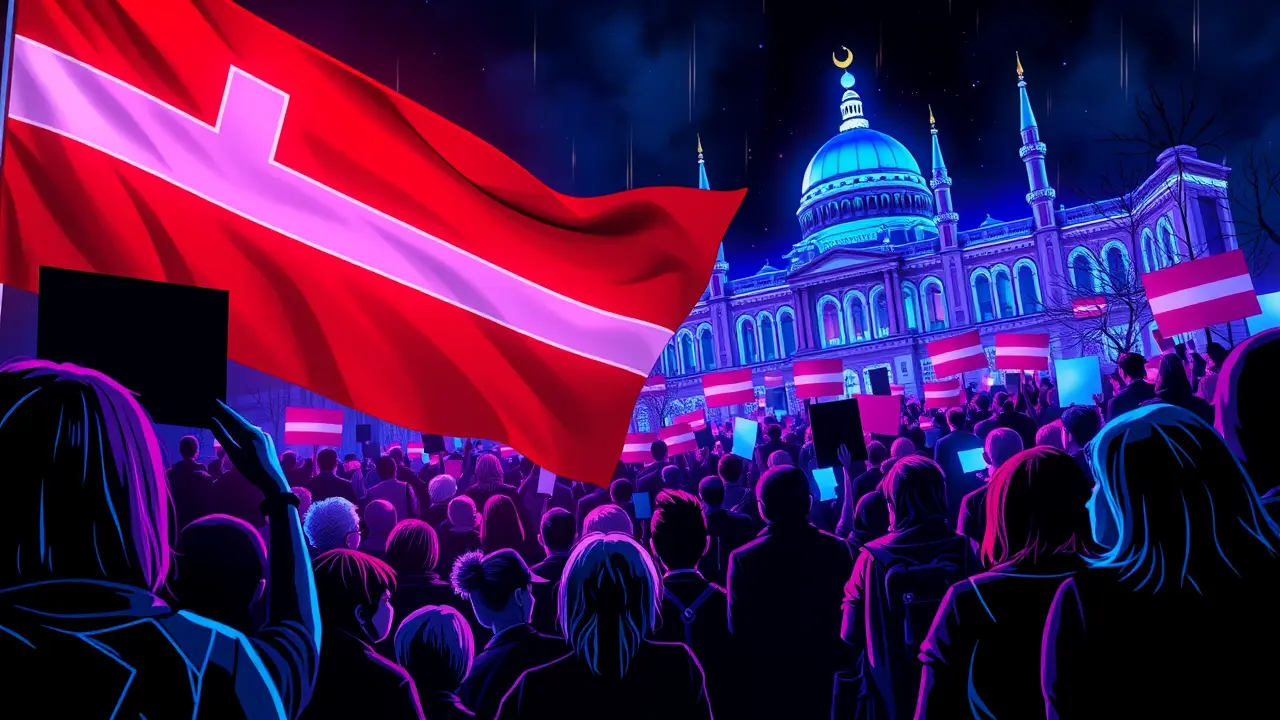
Politicshuman rights
Latvian Parliament Votes to Withdraw from Women's Protection Treaty.
AN
Anna Wright
2 days ago7 min read
In a contentious decision that has drawn sharp condemnation from human rights advocates across Europe, the Latvian parliament has cast a historic vote to initiate withdrawal from the Istanbul Convention, the landmark Council of Europe treaty formally known as the Convention on Preventing and Combating Violence Against Women and Domestic Violence. This move, which saw several thousand protesters flooding the streets of Riga in a visceral display of public dissent, represents a profound regression in the continent's collective commitment to gender equality and places the final, weighty decision squarely into the hands of the nation's president, Egils Levits, who now holds the power to either promulgate the law or return it to the Saeima for further deliberation.The Istanbul Convention, which entered into force in 2014, stands as the first legally binding instrument in Europe creating a comprehensive legal framework to prevent violence, protect victims, and prosecute perpetrators, and Latvia's potential exit follows a troubling pattern seen in other Eastern European nations where a toxic blend of conservative and far-right rhetoric has misleadingly framed the treaty as an attack on traditional family values and a promoter of so-called 'gender ideology'. The parliamentary session was reportedly charged with emotion, echoing the deep societal fissures the issue has exposed; proponents of withdrawal, largely from the conservative National Alliance and segments of the New Unity party, argued for national sovereignty over family law, while opposition lawmakers and civil society organizations warned that this action dangerously legitimizes misogyny and will have dire, tangible consequences for women and children seeking refuge from abuse.The protestors outside, a coalition of feminist groups, LGBTQ+ allies, and social democrats, carried banners with slogans like 'We Are Istanbul' and 'Protect Women, Not Patriarchy,' their demonstration a powerful, living testament to the treaty's symbolic and practical importance. For context, Latvia initially ratified the convention in 2021, but its implementation has been a persistent battleground, and this vote now threatens to unravel years of fragile progress, isolating the country from the mainstream of European human rights law and potentially emboldening similar anti-gender movements in Poland and Hungary.The president's next step is therefore not merely procedural but profoundly constitutional and moral; he must weigh the parliament's will against Latvia's international obligations, its fundamental values, and the safety of nearly half its population. Should he sign it, Latvia would become the first EU member state to leave the convention, setting a catastrophic precedent and creating a dangerous legal vacuum for shelters, helplines, and specialized support services that rely on the treaty's standards, while sending a chilling message that violence against women is not a priority for the state. This is not just a Latvian issue; it is a European crisis of conscience, a stark reminder that the hard-won rights of women are never permanently secured and must be defended with unyielding vigilance against the relentless tides of populism and regression.
#Latvia
#treaty withdrawal
#women's rights
#protests
#president
#violence protection
#human rights
#featured
Stay Informed. Act Smarter.
Get weekly highlights, major headlines, and expert insights — then put your knowledge to work in our live prediction markets.
Related News
Comments
It’s quiet here...Start the conversation by leaving the first comment.
© 2025 Outpoll Service LTD. All rights reserved.











